This article was medically reviewed by Sarah Gehrke, RN, MS. Sarah Gehrke is a Registered Nurse and Licensed Massage Therapist in Texas. Sarah has over 10 years of experience teaching and practicing phlebotomy and intravenous (IV) therapy using physical, psychological, and emotional support. She received her Massage Therapist License from the Amarillo Massage Therapy Institute in 2008 and a M.S. in Nursing from the University of Phoenix in 2013.
There are 7 references cited in this article, which can be found at the bottom of the page.
This article has been viewed 59,210 times.
It can be hard to navigate sex with the human papillomavirus (HPV), but it doesn’t have to be! HPV is a very common sexually transmitted virus. It is so common that almost every sexually active person will contract it at some point in their life. For most people, the virus will clear up on its own, especially if you have a strong immune system. However, it is still important that your partner is aware that you have HPV. Having HPV doesn’t mean you have to stop having sex. Use condoms, dental dams, and latex gloves to protect your partner from contracting the virus when engaging in sex.
Steps
Talking to Your Partner
-
1Review factual information about HPV before you talk to your partner. There are a lot of common misconceptions about HPV. By reviewing common facts about HPV, you will be able to answer your partner’s questions and concerns with confidence. Important facts to know are:[1]
- Any person who is sexually active can contract HPV, even if they had sex with only one person.
- HPV typically does not cause any health problems and goes away on its own.
- HPV is most commonly spread through anal or vaginal sex.
- A person can develop symptoms years after they have had sex with someone who is infected.
-
2Gather informational resources for your partner. Naturally, your partner will want to know more information about HPV. Provide your partner with reliable information about HPV. Ask your doctor for an information pamphlet. Alternatively, print out information about HPV from a reliable website like the Centers for Disease Control and Prevention (CDC) or the National Cervical Cancer Coalition (NCCC).[2]
- By having these resources on-hand, you can prevent your partner from finding information about HPV from unreliable sources.
-
3Bring up the topic. Once you and your partner start to become more intimate with each other, talk to them about it. Tell your partner that you were diagnosed with HPV, a common virus that is transmitted sexually. Keep in mind that having HPV isn’t a reflection of you, your values, or your character. This way, you can answer your partner’s questions confidently.[3]
- Try to avoid viewing the conversation as an apology or confession.
- Say for example, "Before we get intimate, I want to be totally honest with you, Jack. I was diagnosed with HPV awhile ago. But HPV is really common. It's like the flu of sexually transmitted diseases, and most cases are harmless. I totally understand if you want to learn more about it before we proceed. I have a lot of resources with great information that I can give you to read."
Having Safe Sex
-
1Use a condom for vaginal, oral, and anal sex. Condoms will not protect your partner 100% of the time, but they can help reduce the spread of the infection. Use male or female condoms whenever engaging in oral, vaginal, or anal sex.[4]
- Make sure the condom has not expired, and does not have any tears or defects.
- Avoid using both male and female condoms at the same time.
-
2Perform oral sex with a dental dam. Although it is not 100% effective, a dental dam will help reduce the risk of your partner contracting the virus. Use dental dams whenever performing oral sex, whether it is mouth-to-vagina or mouth-to-anus.[5]
- Use a polyurethane or latex dental dam.
- Use silicone or water-based lubricant to prevent the dental dam from breaking.
-
3Use latex gloves for manual sex. When performing manual sex, latex or nitrile gloves will protect your partner’s hands. Have your partner wear the gloves before you engage in sex. Throw the gloves away afterward.[6]
- This method is not 100% effective, but it will help reduce the spread of the infection.
-
4Avoid sex while you have warts present. If you have the type of HPV that causes genital warts, you should not have sex during a breakout of warts. Wait until the warts go away or are removed. While you can spread the virus at any point, the risk is higher when warts are present.[7]
Building a Healthy Immune System
-
1Eat healthy meals. Nourish your body with fresh fruits and vegetables, lean protein, and complex carbohydrates. This way, your body will be able to maintain a healthy immune system. By having a healthy immune system, your body will be able to fight and suppress the virus.
- Try to avoid processed foods, and foods high in sugar, saturated fat, and salt.
-
2Exercise regularly. Exercise also increases immune system health. Try to get at least 135 minutes of exercise each week. Walk, bike, or run around your neighborhood for 30 minutes, 5 days out of the week.
- Alternatively, bike or run for 45 minutes every other day.
-
3Quit smoking if you are a smoker. Smoking can actually increase the risk of HPV turning into cancer. Make a plan to quit smoking to reduce this risk. You can use over-the-counter drugs to help you quit, or join a support group.[8]
- If you need more serious help, contact your doctor. Your doctor may be able to prescribe a medication, like Chantix, to help you quit smoking.
Testing for HPV
-
1Visit your doctor to get a pap test. If you get HPV, visit your gynecologist for a pap test. The pap test is used to determine if the cells in your uterus are shaped abnormally. This can occur if you have HPV-16 and HPV-18, the two types of HPV that can cause cancer.[9]
-
2Get a check up every 12 months if you have abnormal cell behavior. Your doctor will probably ask you to return in a year, and every year after that to check on your abnormal cells. This will continue until your body clears the infection.[10]
- Because cervical cancer is so slow to develop, and because you may heal in the meantime, you shouldn't worry in between visits. Your doctor will catch it if anything is happening.
-
3Get the HPV vaccination. If you already have HPV, the vaccine will not treat or cure the infection. However, it will help protect you from getting other forms of HPV. The HPV vaccine is given in a series of 3 separate shots. The 2nd shot is administered 2 months after the 1st shot, and the 3rd shot is administered 4 months after the 2nd shot.[11]
- If you are 9 to 14 years old, you will only need 2 shots.
- Each shot can cost up to $240. Your health insurance will likely cover this vaccine.
References
- ↑ https://www.cdc.gov/std/hpv/stdfact-hpv.htm
- ↑ http://www.nccc-online.org/hpvcervical-cancer/hpv-and-relationships/
- ↑ http://www.nccc-online.org/hpvcervical-cancer/hpv-and-relationships/
- ↑ http://www.nccc-online.org/hpvcervical-cancer/hpv-and-relationships/
- ↑ https://seniorplanet.org/what-is-safe-sex-with-hpv/
- ↑ https://seniorplanet.org/what-is-safe-sex-with-hpv/
- ↑ https://www.cdc.gov/std/hpv/stdfact-hpv-and-men.htm
- ↑ https://www.cancer.org/cancer/cervical-cancer/causes-risks-prevention/risk-factors.html
- ↑ https://www.cancer.org/cancer/cancer-causes/infectious-agents/hpv/hpv-and-hpv-testing.html
About This Article
Having HPV doesn’t mean you need to stop having sex, but it does mean you need to use extra protection. Before you get intimate with your partner, tell them that you have HPV. For instance, you could say, “Before we continue, I want to be totally honest. I was diagnosed with HPV a while ago.” If your partner is okay with it, you’ll need to use a condom for any type of sex, including vaginal, oral, and anal sex. You should also wear latex gloves when performing manual sex. Make sure to throw away condoms and gloves right after you use them so you don’t spread the infection. If you have the type of HPV that causes genital warts, stop having sex until they go away, since your risk of spreading the infection will be higher. To learn how to get tested for HPV, read more from our Medical co-author.
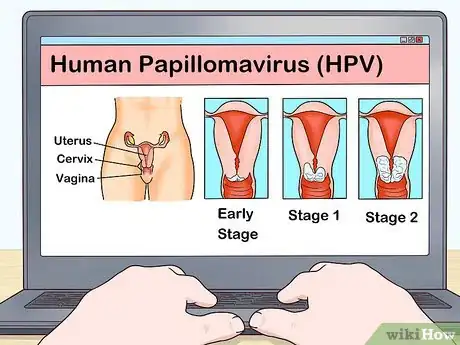
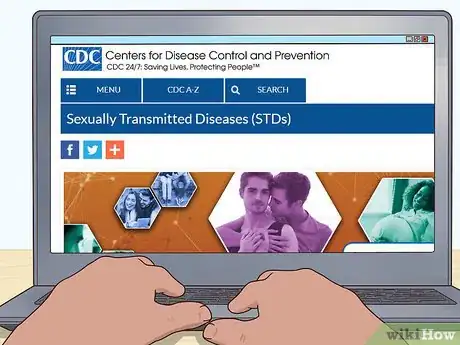
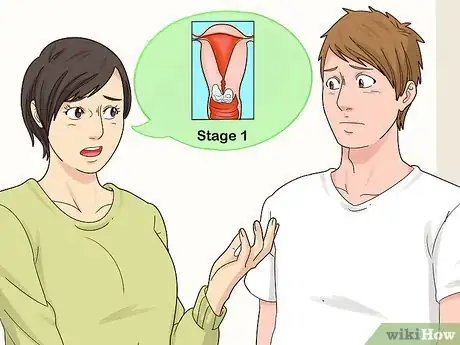
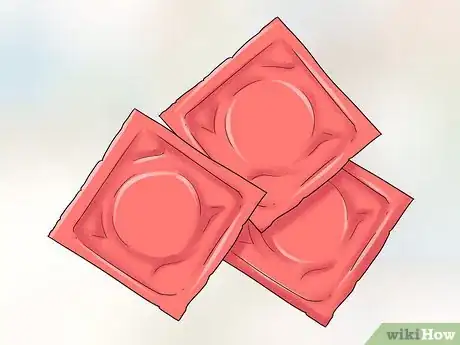

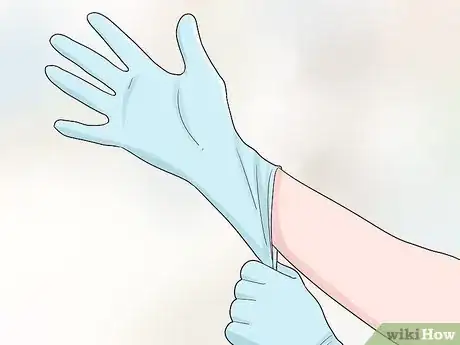
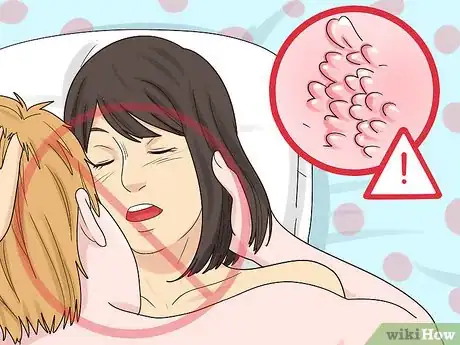


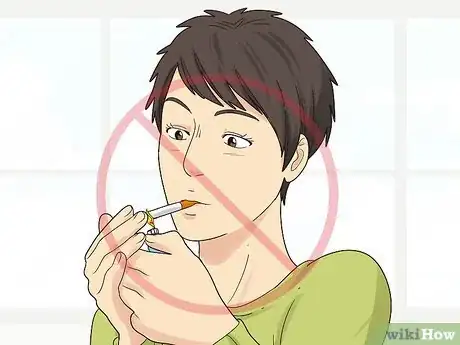
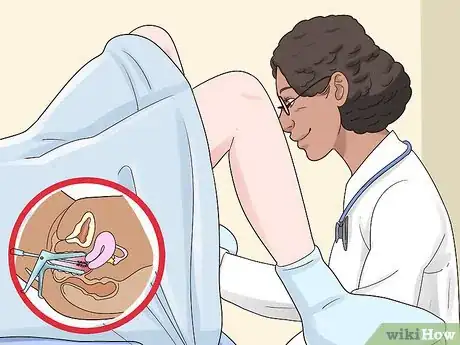
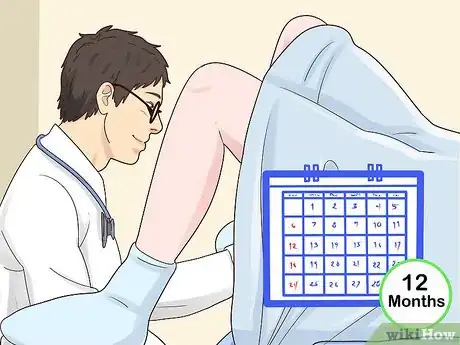
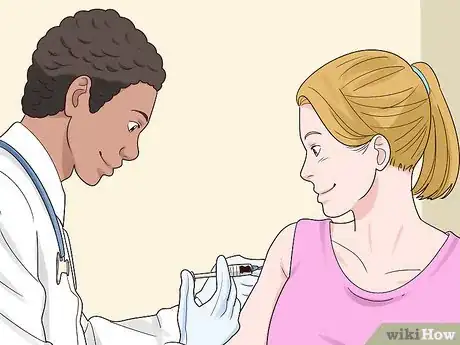


-Step-10.webp)
-Step-20.webp)


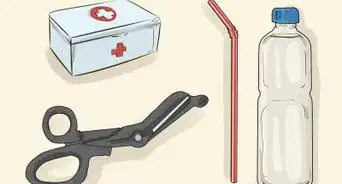
















-Step-10.webp)
-Step-20.webp)



































Medical Disclaimer
The content of this article is not intended to be a substitute for professional medical advice, examination, diagnosis, or treatment. You should always contact your doctor or other qualified healthcare professional before starting, changing, or stopping any kind of health treatment.
Read More...